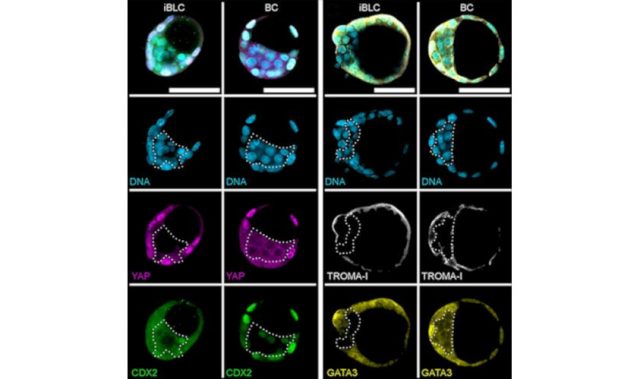
AsianScientist (Jul. 5, 2013) – Researchers in Japan have developed a functional human liver using induced pluripotent stem cells (iPSCs).
The critical shortage of donor organs for treating end-stage organ failure means that there is an urgent need to obtain organs by other means, such as generating them from iPSCs.
Previous attempts to create three-dimensional (3D) vascularized organs from stem cells have been fraught with challenges, but here Takanori Takebe from Yokohama City University in Japan and colleagues take a new approach by focusing on the earliest stage of organ generation.
The study, published in the journal Nature this week, describes how the researchers developed liver buds – an early structure that is seen when livers form – by recreating cellular interactions that normally take place during bud development.
Immunostaining and gene-expression studies revealed a resemblance between the liver buds grown in the laboratory and liver buds from patients.
The liver buds were then transplanted into mice, where the buds matured and developed a vascular system connected to the host within 48 hours of transplantation. The iPSC-derived liver tissue also performed liver-specific functions such as protein production and human-specific drug metabolism.
In addition, the liver bud transplants helped to promote survival in an animal model of drug-induced lethal liver failure, indicating that a functional organ was generated.
Although it remains to be seen whether these techniques will work in human patients, the work provides a proof-of-concept that organ bud transplantation may represent a promising new approach towards regenerative medicine and the treatment of organ failure.
The article can be found at: Takebe T et al. (2013) Vascularized and functional human liver from an iPSC-derived organ bud transplant.
——
Source: NPG; Photo: Kaibara87/Flickr/CC.
Disclaimer: This article does not necessarily reflect the views of AsianScientist or its staff.












